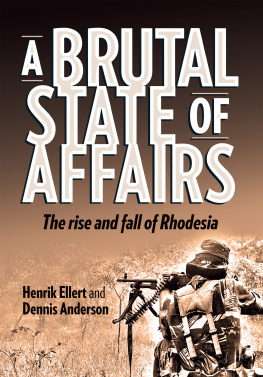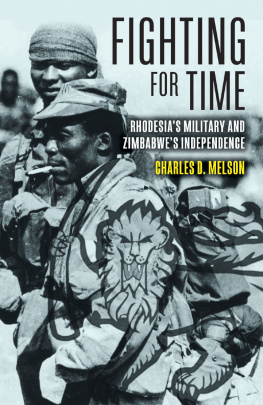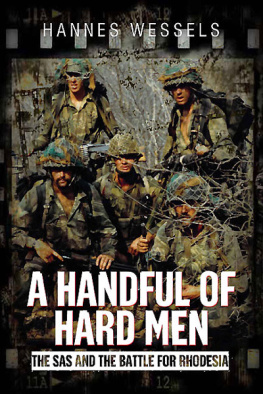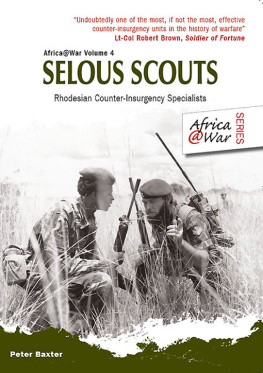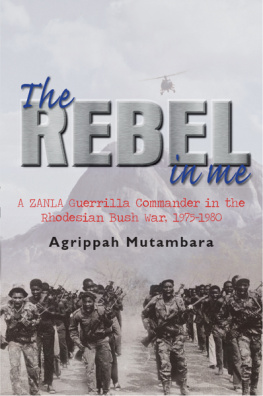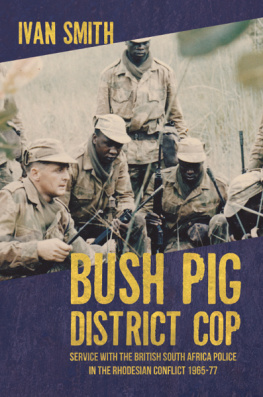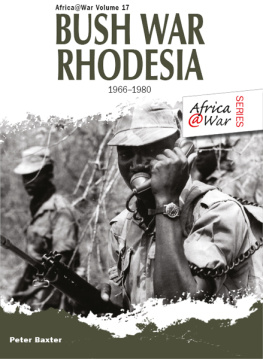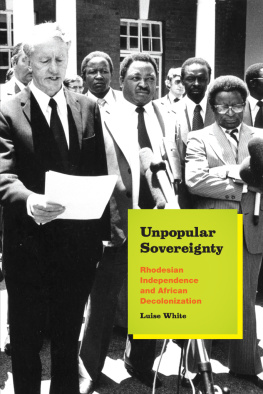
To John

The burial of Cecil Rhodes in the Matopos on 10 April 1902.
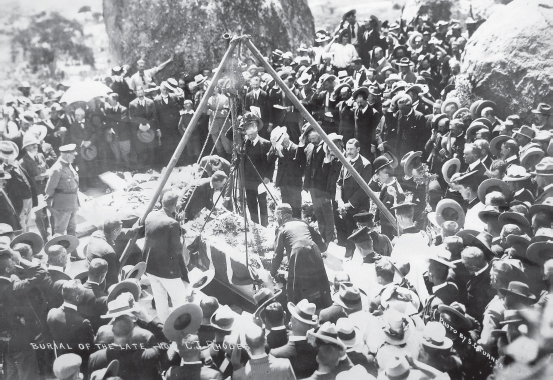
But we we reckon not with those
Whom the mere Fates ordain,
This Power that wrought on us and goes
Back to the Power again.
Rudyard Kipling, The Burial.
A Brutal State of Affairs
The Rise and Fall of Rhodesia
Henrik Ellert
and
Dennis Anderson

Published by
Weaver Press, Box A 1922, Avondale, Harare.
Distributed in South Africa by
Jacana Media
Henrik Ellert and Dennis Anderson, 2020
All rights reserved. No part of the publication may be reproduced, stored in a retrieval system or transmitted in any form by any means electronic, mechanical, photocopying, recording, or otherwise without the express written permission of the publisher.
ISBN:
978-1-77922-373-9 (paperback)
978-1-77922-374-6 (pdf)
978-1-77922-375-3 (e-book)
Typeset by TextPertise, Harare
Cover design by Danes Design, Harare
Contents
In writing this book, the authors wanted to place the transition from Rhodesia to Zimbabwe into a historical context by asking the question why there had to be a war before Zimbabwe attained independence. We hope to provide some answers, first, by challenging Rhodesian mythology. Thereafter, the story is told primarily from the perspective of the BSAP and its off-shoots (the CIO and Selous Scouts), where both white and black officers were forced to deal with a situation that was not of their own making, which is central to the history of Rhodesia.
The primary source material for this comes from documents and the personal notes of the authors, supplemented by original reports and documents from the Special Branch, the CIO, and the Directorate of Military Intelligence. The late John Whelan was a lifelong personal friend of one of the authors (Ellert), and we have included a dedication to his memory. He worked as a journalist on the Rhodesia Herald in the 1970s before being expelled. John provided the inspiration for this book and direct contributions to the chapter relating to the role of the media in Rhodesia. James MacManus, a journalist who reported from Rhodesia in the 1970s and is now managing director of the Times Literary Supplement, shared his experiences of Rhodesias closing days. Our thanks go to James for his continued interest in this project and for coming up with the books title.
Former Assistant Commissioner Special Branch, Robin Harvey, provided details of the Dtente Exercise in the 1970s and the attempts to reach a settlement with Joshua Nkomos ZAPU. Former Superintendent Keith Samler, also of Special Branch, provided hitherto unreported details of the role of Rhodesians serving in the 1980s with the South African intelligence services in the Transkei. Former Detective Inspector Andy Field, who is the moderator of the BSAP Associations website, was supportive of our project and provided additional documents.
Dr Klaus Storkmann (Major) a military researcher in the history of GDR support for liberation movements in Africa, kindly provided details of specific support for ZAPU. Bill Woodman, formerly of the Rhodesian Ministry of Foreign Affairs was based in Paris in the 1970s and helped deepen our understanding of the work done by foreign missions. He also carried out research for the authors, interviewing Hasu Patel, who provided material about Rhodesias Asian community in support of the nationalist movements. Mark Oxley provided information from the unpublished memoirs of his father, Harry Oxley, who played a significant role in sanctions-busting operations in France, Belgium and francophone Africa countries.
Former Detective Inspector John Padbury shared his experiences running irregular forces in Rhodesia and provided photographic material, and Captain David Padbury, who served at COMOPS in 1978/79, also shared his experiences and a photograph. Award-winning Zimbabwean journalist, Angus Shaw, author of several books about Zimbabwe, provided his own insight into the story of the Rhodesians and shared Wilf Nusseys unpublished manuscript about the extraordinary life of John Edlin. Photographer Paul Harris, who left Rhodesia in the 1970s after taking controversial photographs of the Rhodesians deploying napalm bombs, has exceptionally allowed us to use illustrations of journalists in Rhodesias 1970s. Photographer Peter Jordan provided the photographs of train derailments in Mozambique that he took while on assignment with Edlin in 1974. Photographer Mike McGeorge generously shared images that he had taken in Mozambique and Rhodesia during the 1970s. We have also been able to use illustrations from the BSAPs Outpost magazine, and other illustrative material has come from official publications of the Rhodesian government and from the National Archives. We have received shared experiences and knowledge from many who sought no particular acknowledgement: their contributions are all greatly appreciated.
Documents obtained from PIDE/DGS archives in Lisbon on the war in Mozambique and its implications for Rhodesia were kindly facilitated by the Arquivo Nacional, Torre do Tombo, Lisbon, with the permission of Paulo Tremoceiro, Chefe de Diviso de Comunicao e Acesso, Arquivo Nacional da Torre do Tombo. The assistance of Dalila Cabrita Mateus, author of a history of PIDE/DGS in the overseas provinces until 1974, in facilitating an introduction to Paulo Tremoceiro, is also acknowledged and appreciated. The late James Bannerman provided materials on the Servios de Coordenao e Centralizao de Informaes de Moambique (SCCIM), and also provided insight into FRELIMO operations in the Manica province of Mozambique in late 1970 and helped research maps of external operations.
Marda Fairlie, Ken Flowers daughter, provided access to documents from her late fathers archives that were not included in his book, Serving Secretly. Assistant Commissioner Mike Edden provided the authors with a copy of his unpublished memoirs before his death, which contained, inter alia, details of Operation Ballot-rigging during the final days of Rhodesia.
The maps and charts reproduced in the book were carefully crafted by Kevin Philip, based on material provided by the authors and scrutinised by our editor. Finally, the authors acknowledge the excellent work done by our editor Roger Stringer. In pulling our work together, helping us prepare this perspective on events that have shaped present-day Zimbabwe, he demonstrated an acute understanding of the countrys history as he meticulously rendered our raw material into its final form and for this the authors owe him a debt of gratitude. We couldnt have found a better person to work with us on making this book possible.
Henrik Ellert and Dennis Anderson
Harare, February 2020
Henrik Ellert was born in Denmark but grew up in Kenya during the Mau Mau emergency. He came to Zimbabwe in 1961 and joined the police force in 1964, initially serving two years in the uniformed branch and stationed in Shabani and Hartley, where he gained his first experience with the nationalist guerrilla insurgency after the killing of the Viljoens by ZANLA in 1966. He later transferred to the CID being stationed in Gweru and shortly after joined Special Branch posted to the Chirundu border post where he was involved in Operation Couldron and Griffin and intel collection from Zambia.
Next page
